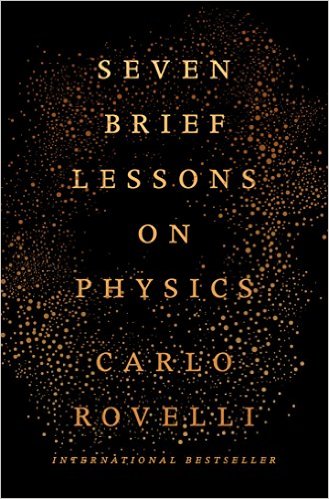At eighty-one pages, Seven Brief Lessons on Physics is indeed brief. I will also be brief. There is a quasi-overarching theme of a physical world our human consciousness cannot comprehend – one of curved space, particles smaller than atoms, and a lack of objective time where all past, present, and future has happened/is happening – and it’s as poetic as it is discombobulating.
“People like us, who believe in physics, know that the distinction made between past, present and future is nothing more than a persistent, stubborn illusion.” -Albert Einstein
I recommend this book because it exposed me to new information. Additionally, it made me think about how little we know and understand about our world and ourselves. Truly, I have more questions than answers after reading it. Here are a few things I found interesting:
- The “big bang” may have actually been more of a “big bounce,” with a previous universe contracting to the size of a nutshell, then expanding into what we know today
- The strange laws of quantum mechanics dictate that “everything that exists is never stable and is nothing but a jump from one interaction to another.”
- Time “passes” faster the higher up you are. If I live on top of a mountain I will visibly age more than if I live at sea level
- Heat moves to cold objects not because that is the default – it’s simply statistically more likely
- A human has a hundred billion neurons in the brain – that’s also how many stars are in a galaxy
Get your copy of Seven Brief Lessons on Physics
